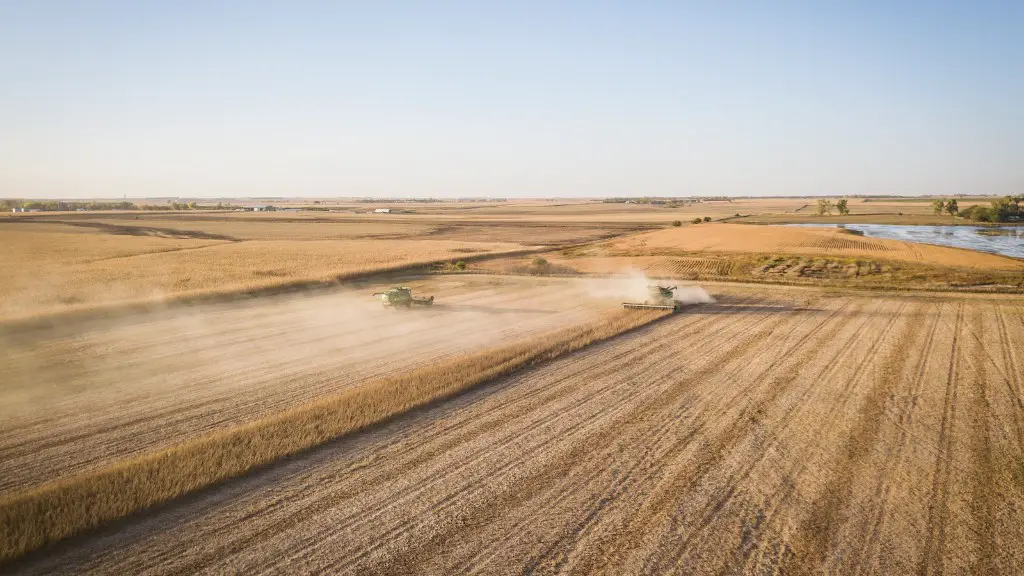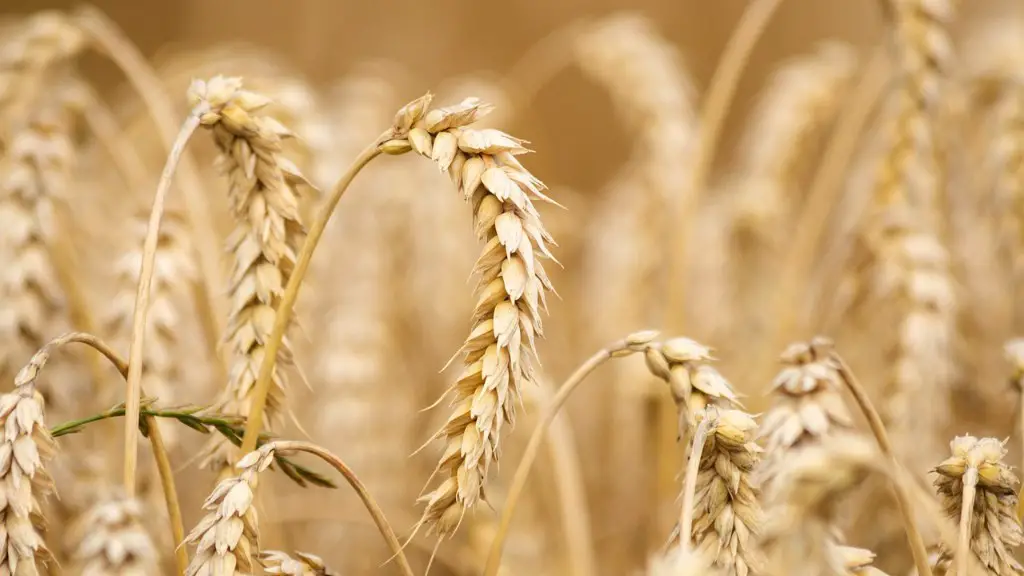The origins of agriculture can be traced back to the early Holocene era, when humans first began to domesticate plants and animals. It is still debated whether agriculture was invented or discovered, as there is evidence to support both theories. However, it is clear that agriculture has had a profound impact on human society, shaping the way we live and interact with the natural world.
The answer to this question is complicated and there is still much debate among anthropologists and archaeologists about the origins of agriculture. Some believe that agriculture was invented by humans, while others believe that it was discovered by humans. There is evidence to support both claims.
For example, some argue that agriculture was invented because early humans realized that they could domesticate plants and animals, and that this would provide them with a steadier food supply. Others believe that agriculture was discovered when early humans began to notice that certain plants would regrow after being eaten, and that they could cultivate these plants to provide a more reliable food source.
Ultimately, there is no definitive answer to this question. It is likely that the truth lies somewhere in between, and that both invention and discovery played a role in the origins of agriculture.
When was agriculture discovered?
The agricultural communities that developed approximately 10,000 years ago were a major turning point in human history. By domesticating plants and animals, humans were able to establish communities and transition from a nomadic hunter-gatherer lifestyle to a more settled way of life. This development had a profound impact on the course of human history, and has shaped the world we live in today.
The Egyptians were one of the first cultures to practice agriculture on a large scale. They began during the pre-dynastic period, from the end of the Paleolithic era into the Neolithic era. This was between approximately 10,000 BC and 4000 BC. The Egyptians developed irrigation systems and other techniques that allowed them to farm the land more effectively. This allowed them to support a larger population and create a more complex society.
Where was agriculture first discovered
The Fertile Crescent is a region of the Near East that was one of the cradles of civilization. It is thought that agriculture first originated in this region, and it was here that some of the earliest known civilizations developed, including the Sumerians, Babylonians, and Assyrians. The Fertile Crescent was also the birthplace of the first written language, cuneiform, and of the first alphabet, which was used by the Phoenicians.
Over the past few decades, archaeologists have been rethinking the origins of agriculture. It is now clear that there was no single “agricultural revolution.” Instead, farming was “invented” independently in different parts of the world at different times.
The most recent research suggests that agriculture first arose in the Fertile Crescent (which includes parts of modern-day Turkey, Iraq, and Iran) around 11,000 years ago. From there, it spread to other parts of the world, including Europe, Asia, and the Americas.
This new understanding of the origins of agriculture has important implications for our understanding of human history. It shows that our ancestors were far more innovative and adaptable than we previously thought.
Where did agriculture first begin and when?
The Zagros Mountain range, which lies at the border between Iran and Iraq, was home to some of the world’s earliest farmers. Sometime around 12,000 years ago, our hunter-gatherer ancestors began trying their hand at farming. This was a major turning point in human history, as it led to the development of civilizations and the domestication of plants and animals. The Zagros Mountains are a key part of this story, as they provided a perfect environment for early farmers to test out their new way of life.
Agriculture is the cultivation of food and goods through farming. It is thought to have been practiced sporadically for the past 13,000 years, and widely established for only 7,000 years. Agriculture produces the vast majority of the world’s food supply.
Was the invention of agriculture a mistake?
It is clear that the rise of farming led to some major problems for humanity. We were forced to choose between limiting population or trying to increase food production, and we chose the latter. This led to starvation, warfare, and tyranny. It is important to learn from this mistake and make sure that we do not make the same mistake in the future.
The Sulaiman and Kirthar hills are located in the north-west of India and are home to some of the oldest civilizations in the world. Around 8000 years ago, men and women first began to grow crops of wheat and barley in the region. The hills have a long and rich history, and today they are home to a number of different cultures and traditions.
How did early man discover agriculture
Farming allowed early humans to control their food supply by growing plants and raising animals. This was a major discovery that changed the way humans lived. Agriculture allowed for the development of civilizations and the growth of populations. Today, farming is a vital part of the global food system.
The wheat plant is a kind of grass that has been domesticated by humans for thousands of years. Early humans began to cultivate wheat for food in the Middle East about 10,000 years ago. The wheat plant was first domesticated in the Fertile Crescent, a region that includes parts of present-day Turkey, Syria, Iraq, Iran, and Israel.
Barley is a cereal grain that was also first domesticated in the Fertile Crescent. It is thought that barley was domesticated before wheat, and that both crops were first grown in the region now known as the Levant (an area that includes present-day Syria, Lebanon, Jordan, and Israel).
Did a woman invent agriculture?
The dating system that Stone uses is based on the assumption that women invented agriculture. This assumption is disputed by many scholars, who believe that the invention of agriculture was a collaborative effort between men and women. Nevertheless, Stone’s dating system provides a useful framework for understanding the development of early human societies.
China has 7% of the arable land and with that, they feed 22% of the world’s population. This is an amazing feat and it is a testament to the efficiency of Chinese agriculture. China is able to produce so much food with so little land because they utilise intensive farming methods and have a large labour force. Moreover, the Chinese government has invested heavily in agriculture, providing subsidies and investing in infrastructure.
What is the oldest crop
Lentils are a type of legume that have been cultivated for thousands of years. They are an important part of many traditional dishes and have played a role in the development of many cultures. Today, lentils are enjoyed by people all over the world and are a healthy and delicious addition to any meal.
The Neolithic Revolution changed humanity forever by ushering in the era of agriculture. Prior to this time, people primarily relied on hunting and gathering for their food. The shift to agriculture allowed for the domestication of plants and animals, which led to more stable food supplies and the rise of civilizations. The Neolithic Revolution is considered one of the most important events in human history.
What was the first agriculture?
Agriculture allowed humans to domesticated plants and animals, which led to the development of civilization. Agriculture also allowed for the growth of cities and the rise of civilizations. Agriculture is one of the most important inventions in human history.
Climate change and overhunting are two of the most significant threats to the food supply. Climate change may have made it too cold or too dry to rely on wild food sources, and overhunting may have pushed the extinction of some well-known species. These shortages of food can lead to the settlement of populations and the practice of agriculture.
Conclusion
It is impossible to say for certain whether agriculture was invented or discovered. The first evidence of agricultural practices dates back to around 10,000 BC, but it is possible that these early methods were developed independently by different cultures. It is also possible that the origins of agriculture can be traced back even further.
There are many theories about how agriculture began, but the most commonly accepted theory is that it was discovered. Evidence suggests that early humans began to domesticate plants and animals around 10,000 years ago. Agriculture allowed for the domestication of plants and animals, which led to the development of civilizations. Agriculture is an important part of human history and has had a significant impact on the development of the world.





